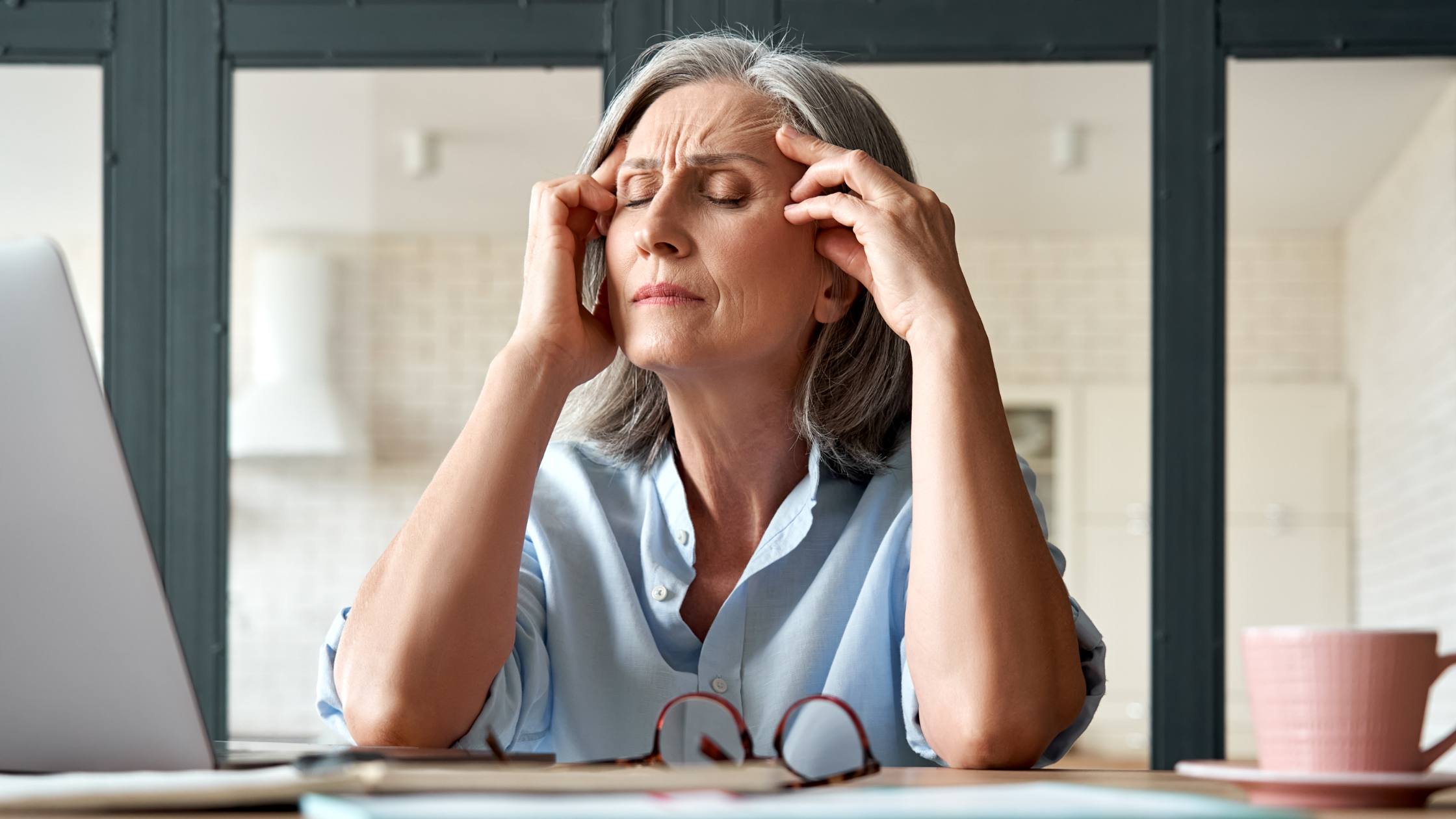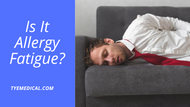Allergy Fatigue: Are Allergies Wearing You Out?
Written by TYE Medical on Jul 29th 2022
As allergy season heats up, you might notice yourself slowing down. It’s easy to recognize allergies when your symptoms are itchy, watery eyes or sneezing. But what about drowsiness or feeling drained? While many health conditions and circumstances lead to fatigue, don’t discount allergies as a possible cause.
People describe allergy fatigue as lethargy, sleepiness, and even brain fog. But the degree of fatigue varies among people. Some may feel a little drowsy in the afternoon while others can barely make it through the day.
So, what’s happening? Why do allergies make you want to take a nap? And what happens if you’re already taking allergy medication? Here’s what we know.
Why Do Allergies Make You Sleepy?

If your allergies aren’t well-controlled you may experience some breakthrough allergy symptoms like a runny nose, cough, or even fatigue. But why do allergies make you want to grab a pillow and crash on the couch? Your body fights off allergies like it fights off a cold or the flu. Your immune response is ramped up as your body engages in battle and this can feel very draining.
But there’s more. Inflammation is part your body’s immune response, which can also trigger allergy fatigue. When you have an allergic reaction to pollen, dust, or pet dander, your body releases proteins known as cytokines that trigger inflammation. When due to allergies, the inflammation is usually in your nasal passages. Chronic or acute inflammation has been linked to fatigue.
Allergies may also indirectly cause you to feel tired. Symptoms like coughing, sneezing, and nasal congestion may disturb your sleep and keep you from getting a good night’s rest. This can leave you feeling fatigued during the day and make concentration difficult.
And sometimes the solution can be part of the problem. Common allergy medications like Benadryl can themselves cause drowsiness. However, new medications like Zyrtec, Xysal, Claratin, and Allegra are less likely to have drowsiness as a side effect. If you want to be cautious, take your allergy pill at night rather than in the morning.
So what are the first steps in combating allergy fatigue?
Get Allergy Tested

If you’re tired of feeling tired, you might be ready to zero in the precise cause. Once you pinpoint your specific allergens, you can focus on limiting or avoiding your exposure. Allergy tests identify the allergens that trigger a reaction in you, whether they’re something you’re breathing, eating, or touching. If you opt for a skin prick test, the skin on your arm or back will be exposed to small levels of allergens to gauge a reaction. An allergist can test for many allergens at once, and you’ll get your results almost immediately.
You can also choose to have a blood allergy test, which is a good option if you take medications that could somehow interfere with the allergy testing. Your doctor will know if this is the case. Your doctor may also recommend a blood test if he or she expects you’ll have a severe allergic reaction during the testing.
Avoid Allergy Triggers

If you find out what you’re allergic to, you can concentrate on avoiding those specific allergens. But if you’ve opted out of testing, you can also apply this solution by avoiding the most common allergy triggers—pollen, ragweed, dust, mold and pet dander. Here are some common methods that help you fight allergies, even while taking allergy medication.
Vacuum frequently and clean often.
Keep hard surfaces wiped clean to eliminate dust and vacuum carpets to cut down on several allergens trapped in its fibers. Wash your clothes and linens after each use. You should also change your air filters regularly and consider buying air purifier.
Eliminate and prevent indoor mold.
Since mold thrives in damp, humid conditions, it’s best to keep your home’s humidity levels below 50%. Use mold-eliminating cleaners in your bathroom, laundry room, and other damp areas.
Don’t hang your clothes outside to dry.
When your wet clothes hang outside they attract airborn allergens like pollen and mold. If you want to keep your allergic reactions minimal, immediately dry your clothes in the dryer instead.
Protect yourself during yard work.
Wear a mask while mowing the grass and gardening. It’s also a good idea to wear gloves when gardening. It’s important to protect yourself from mold spores in the ground and air during these outdoor activities. A breathable mask and gloves can help you reduce your exposure.
Keep windows closed in your home and car.
Closed windows will help keep outdoor allergens outside rather than in your home triggering allergy symptoms.
Stop Smoking.
Since smoke is a common allergy and asthma trigger, stopping or reducing secondhand smoke exposure can relieve allergy symptoms.
Allergies and Stress Incontinence
Common allergy symptoms like sneezing and coughing can trigger bladder leaks due to stress incontinence. This type of incontinence occurs when the pelvic floor and bladder muscles are weakened, placing pressure or stress on the bladder that leads to leaks when you exercise, cough, or sneeze.
Try TYE Medical’s premium incontinence products to manage your bladder leaks.. Shop our online store for discreet and free shipping on all orders.


